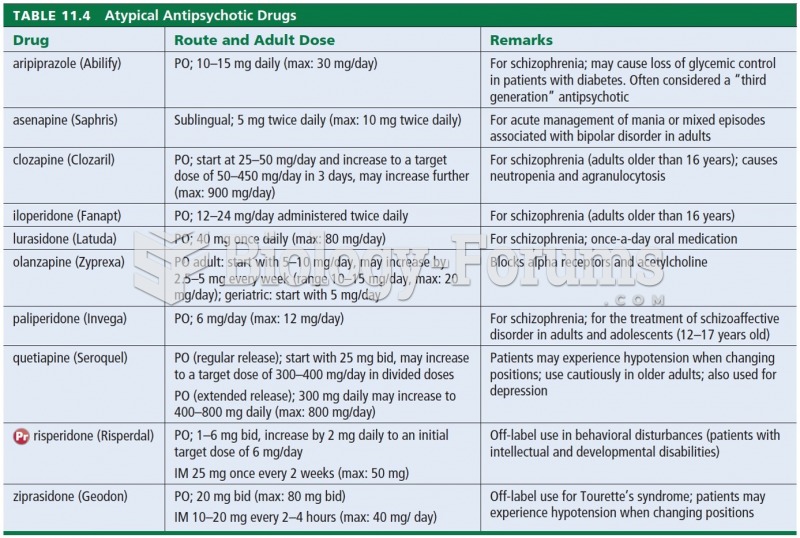This topic contains a solution. Click here to go to the answer
|
|
|
Did you know?
The most destructive flu epidemic of all times in recorded history occurred in 1918, with approximately 20 million deaths worldwide.
Did you know?
Bacteria have flourished on the earth for over three billion years. They were the first life forms on the planet.
Did you know?
The horizontal fraction bar was introduced by the Arabs.
Did you know?
By definition, when a medication is administered intravenously, its bioavailability is 100%.
Did you know?
In 2006, a generic antinausea drug named ondansetron was approved. It is used to stop nausea and vomiting associated with surgery, chemotherapy, and radiation therapy.
 Cervical cancer (a) Top view of the uterus showing the presence of a tumor in the wall of the cervix
Cervical cancer (a) Top view of the uterus showing the presence of a tumor in the wall of the cervix
 Many fathers and infants form secure attachments. Fathers’ style of interaction differs somewhat ...
Many fathers and infants form secure attachments. Fathers’ style of interaction differs somewhat ...




